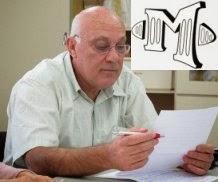Τhe 29th of May 1453, Constantinople had fallen into Turkish hands marking the end of the Byzantine Empire and the rise of the Ottoman empire. The Ottoman empire would conquer during it's time the Balkans, Caucasus and Crimea, Northern Africa, and the Middle East reaching the peak of its strength in 1683.
Υet, during the 1800's and early 1900's, many occupied countries declared independence through revolutions (Serbia,1804), (Bulgaria,1876), (Romania,1878), (Greece,1821). Most revolutions were supported by Russia since Russian governments wanted control of the Black Sea and the Balkans. In 1814, the Secret Greek Nationalist Organization "The Friendly Society" (Filiki Eteria) was formed in Odessa. The members received economic help from many wealthy Greeks from abroad to help and organize the Greek revolution. Military aid derived from Russia as well as support and sympathy from many Europeans.
The morning of the 25th of March 1821, the Orthodox Bishop Germanos III of Old Patras declared a national uprising against the Ottomans.
In the very beginning, Greeks quickly conquered Southern Greece since there wasn't any Turkish military force in the area.The big moments of the revolution was the the capture of Tripoli 1821,the battle of Dervenakia 1822, the naval battle of Geronta 1824,the battle of Mills of Argos the sally of the besieged of Mesologgi 1826. In response, the Ottomans set the island of Chios 1822 on fire, and with the help of Imbraim, their ally from Egypt, stopped the revolution in Crete and set Psaras on fire. That ended in disadvantage of the Turks making the British, the Russians and the French more sympathetic towards the Greeks. In 1824, the philhellene Lord Byron arrived in Mesologi to fight the Ottomans and donated more than 4000 pounds to the Greek fleet, but sadly he died due to heavy fever In April of 1824.
The great heroes of the Greek revolution were Th.Kolokotronis,G.Karaiskakis,Od.Androutsos, Papaflessas, An.Miaoulis, K.Kanaris....and the women Bouboulina, M.Maurogenous...etc
In October 1827, the battle of Navarino in which the joint British, French and Russian fleet destroyed the Ottoman fleet. The war continued for a few more years before the British ending it in 1830 through a cease-fire. The Greek Independence was official. The first governor of the newly independent Greece was Ioannis Capodistrias. He was assassinated in 1831. The Russians agreed with the Greeks and the British on the creation of the Greek Kingdom and the placement of the Bavarian Prince Otto as the King of the country.
Cultura não é o que entra pelos olhos e ouvidos,
mas o que modifica o jeito de olhar e ouvir.
A cultura e o amor devem estar juntos.
Vamos compartilhar.
Culture is not what enters the eyes and ears,
but what modifies the way of looking and hearing.
--br via tradutor do google
A História da Revolução Grega (25 de março de 1821)
No dia 29 de maio de 1453, Constantinopla havia caído em mãos turcas marcando o fim do Império Bizantino e a ascensão do Império Otomano. O Império Otomano conquistaria durante seu tempo os Balcãs, o Cáucaso e a Criméia, o Norte da África e o Oriente Médio atingindo o pico de sua força em 1683.
Durante os anos de 1800 e início de 1900, muitos países ocupados declararam a independência através de revoluções (Sérvia, 1804), (Bulgária, 1876), (Romênia, 1878) (Grécia, 1821). A maioria das revoluções foi apoiada pela Rússia desde que os governos russos queriam o controle do Mar Negro e dos Balcãs. Em 1814, a Organização Nacional Grega Secreta "A Sociedade Amiga" (Filiki Eteria) foi formada em Odessa. Os membros receberam ajuda econômica de muitos gregos ricos do exterior para ajudar e organizar a revolução grega. Ajuda militar derivada da Rússia, bem como apoio e simpatia de muitos europeus.
Na manhã do dia 25 de março de 1821, o bispo ortodoxo Germanos III do antigo Patras declarou uma revolta nacional contra os otomanos.
Os primeiros momentos da revolução foram a captura de Trípoli em 1821, a batalha de Dervenakia em 1822, a batalha naval de Geronta em 1824, A batalha de Mills de Argos o sally do sitiado de Mesologgi 1826. Em resposta, os otomanos puseram fogo à ilha de Chios 1822 e, com a ajuda de Imbraim, seu aliado do Egito, parou a revolução em Creta e psaras fogo. Isso terminou em desvantagem dos turcos tornando os britânicos, os russos e os franceses mais simpáticos para com os gregos. Em 1824, o filósofo Lord Byron chegou em Mesologi para combater os otomanos e doou mais de 4000 libras à frota grega, mas infelizmente ele morreu devido à pesada febre Em abril de 1824.
Os grandes heróis da revolução grega foram Th.Kolokotronis, G.Karaiskakis, Od.Androutsos, Papaflessas, An.Miaoulis, K.Kanaris .... e as mulheres Bouboulina, M.Maurogenous ... etc
Em outubro de 1827, a batalha de Navarino em que a frota conjunta britânica, francesa e russa destruiu a frota otomana. A guerra continuou por mais alguns anos antes do fim britânico em 1830 por um cessar-fogo. A independência grega era oficial. O primeiro governador da Grécia recém-independente foi Ioannis Capodistrias. Foi assassinado em 1831. Os russos concordaram com os gregos e os britânicos na criação do reino grego e na colocação do príncipe bávaro Otto como o rei do país.




Nenhum comentário:
Postar um comentário